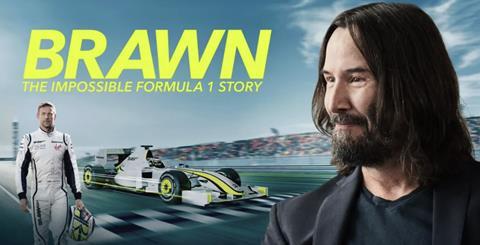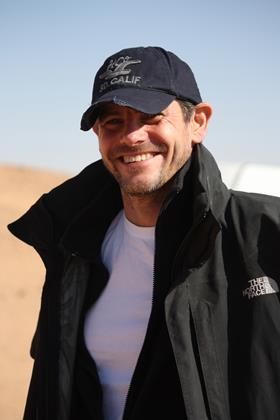Daryl Goodrich explains the power of a well-made film and the pitfalls of using AI as part of the process

It’s close to 20 years since two short films I directed played a significant part in London’s bid to win the 2012 Olympic Games.
‘Sport at Heart’ and ‘Inspiration’ were credited with being a key component in helping secure London’s hosting and, indeed the then Mayor of the capital, Ken Livingston, thought the films actually “won the Olympics.”
A more realistic appraisal came from The Observer newspaper, who billed them as one of the 10 most influential factors in the submission led by Lord Sebastian Coe.
Regardless of how big a part the films played, they set a benchmark for future country’s presentations when bidding for future major sporting events.
The simple truth is a film needs to engage and enlighten. Whilst there was a clear brief of what London’s bid needed to reflect, our objective as storytellers was to find a captivating and entertaining way to convey the message. We achieved this by focusing on simple filmmaking – a good idea, an effective script, great cast and good direction.
Fast forward those near two decades and while some processes and technology have changed in the production world, the art of great filmmaking has remained the same.
If you get the idea right, then the impact and results of the film you make has immense influence over an audience, be it to help win major sports contracts or as pure cinematic entertainment.
Get it wrong and it will be forgotten and destined for the growing pile of films gathering dust.
You can throw large amounts of money and special effects at an idea, but if it starts off on a page as a weak concept it will never become a classic masterpiece.
Time spent working on an idea is one of the most important stages of any production. As a director who has spent his whole career working on creative ideas and looking for powerful stories, I can’t stress this point enough.
It is these principles that have allowed me to play a part in several other successful major sport event bids since London as well as directing and producing films, TV documentaries and commercials for a number of top brands.
Last year the FIS (International Ski and Snowboard Federation) reached its centenary. The client wanted a film to celebrate this landmark. As part of the pitch process, I developed a script that was far removed from anything they had previously commissioned.
To support the script, we made a ‘mood’ film from a multitude of archive material, capturing the sentiment of the story. It clearly illustrated the pace, drama and narrative which helped the client understand exactly the type of film they would be getting if we were to be successful with the pitch.
The ‘mood’ film is an excellent addition in helping tip the balance with winning a commission or not, while still giving the director creative freedom when producing the film for real. It was creatively different, but we won the tender.
In contrast to this, I recently received an agency storyboard for a commercial featuring David Beckham and the star players from French football champions Paris St. German.
The board was generated in AI. At first glance I was hard pushed to work out if it was ‘real’ or not. The agency had sold this storyboard to the client and now expected us to replicate the board when we came to shoot it.
The problem with an AI-generated storyboard is it doesn’t really bare any resemblance to the reality of filming on location. The boards were so ‘photo-real’ it was taking away any additional creativity a director would normally add, and I found myself constantly trying to deliver the AI storyboard the client had bought, rather than use my creativity.
I’m sure there’s a fine balance and AI definitely has its place in production, but we need to be careful all filmmaking doesn’t become dictated by technology and thereby removing the greatest form of creativity - a human.
And it is important to remember, there is no magic formula. A good director will instinctively know if the story will work and, more importantly, be worth making.

Daryl Goodrich is an Emmy award-winning director-producer




No comments yet